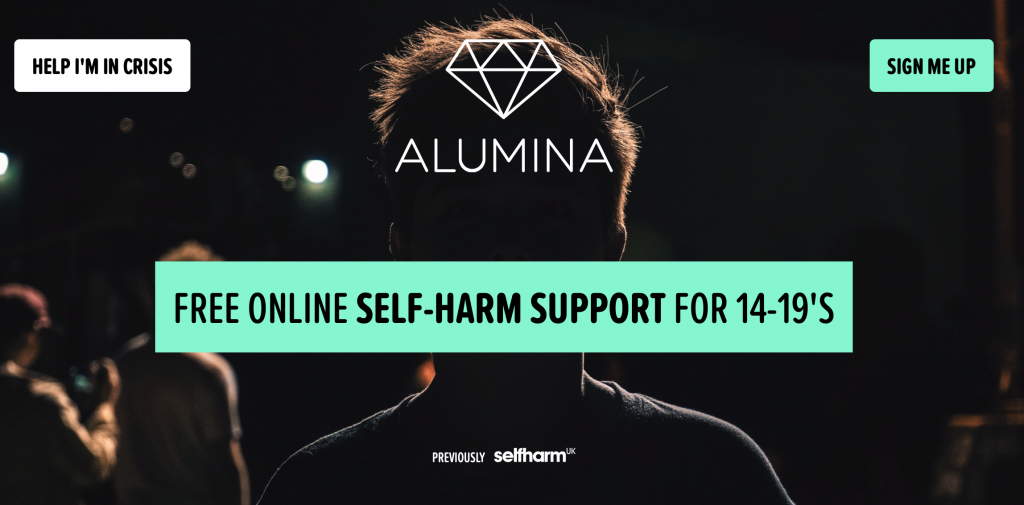Listed below are links to relevant school information or links to useful pastoral support organisations:
 Coping with Anxiety
Coping with Anxiety
There are many reasons why Teenagers feel anxious. Maybe they are worrying about upcoming exams?
Looking after yourself during GCSEs
We can also talk through friendship issues, relationship concerns and signpost students to practical advice where relevant. Often just sharing worries can help put things into perspective and let the student know they are not alone in what they are dealing with. An outside view can often put things into perspective and help build resilience, so that our students can begin to understand why they feel the way they do, and how to tackle it.
When there is no obvious reason for feeling anxious, there are a number of resources we can refer to:
Helping Children and Young People Manage Anxiety
The Caregivers Guide to Anxiety
Shout 85258 is the UK’s first free, confidential, 24/7 text support service. It’s a place to go if you’re struggling to cope. Text SHOUT to 85258.
Reducing stress
At Redmoor Academy we offer lots of strategies for students struggling with stress. Stress is a common feeling that people experience in all walks of life. From starting at a new school to sitting your exams. Small amounts of stress are normal and help motivate us to tackle the issue at hand however some people experience excessive amounts of stress, which then becomes a problem.
Stress can make you feel
- Irritable
- Anxious
- Like you cannot enjoy yourself
- Worried
When you find yourself in a stressful situation or feel stressed, take note of how this feels mentally and physically. This will help you pinpoint stressful moments in your life easier and enable you to deal with them more effectively.
Some things that can help reduce stress include
- Work out what’s making you feel stressed, is it exams, homework or friendships.
- Try and have a healthy lifestyle, eat well with lots of sleep.
- Exercise regularly
- Try mindfulness, relaxation and breathing exercises
- Plan work and keep track of it, break it into small manageable chunks
- Talk to someone about your stress
As a school we can help support students who are feeling stressed with mentoring, organisational skills and where relevant signposting for extra support.
There are a number of online apps that offer guided meditations for a course of time. These apps include, Headspace, Calm, Stop Breathe Think, Inner Timer and many more. Guided meditation has known benefits to a number of different things including reducing stress, improving mental well being and recognising anxiety.
If you feel stressed, talk to a trusted adult, your teacher or a member of staff who can offer advice and help you manage your stress better.
Here are some resources that may be of use:
https://drive.google.com/file/d/0BzwqtOHifeAwendhbWtPQ3V4YWM/view?usp=sharing
https://drive.google.com/file/d/0BzwqtOHifeAwcWVpNGtkSVRuT3c/view?usp=sharing
https://drive.google.com/file/d/0BzwqtOHifeAwVlpRNkFlRkl6MEk/view?usp=sharing
https://drive.google.com/file/d/0BzwqtOHifeAwSFVULTFvNDEtaGM/view?usp=sharing
https://docs.google.com/document/d/1df7RMP50jK6RhRwE__c6lBJp9DGZdZQVOgBANHc3F_A/edit?usp=sharing
Managing and Understanding Our Emotions
We offer a range of strategies for dealing with extremes of emotions, where students find it hard to cope with the way that they are responding to situations. This can be through mentoring and coaching more appropriate ways of dealing with their emotions, including How to Deal With Anger. This can support students who are finding that the way they are dealing with their feelings is not appropriate, and causing them or others upset or harm.
Mindfulness
- More aware of feelings
- Feeling no judgement
- Living in the present
“Mindfulness means paying attention in a particular way; on purpose, in the present moment and non judgmentally.”
Some students have used guided meditation to help fight exam stress while at Redmoor with great success. This was set up a few years ago and had a good uptake from both boys and girls during PSHCE in the exam period. During these sessions they would do 10-15 minutes of guided meditation from the headspace app followed by some mindful colouring. This gave students some much needed downtime from the stresses that GCSE’s bring.
There are a number of online apps that offer guided meditations for a course of time. These apps include, Headspace, Calm, Stop Breathe Think, Inner Timer and many more. Guided meditation has known benefits to a number of different things including reducing stress, improving mental well being and recognising anxiety.
https://www.nhs.uk/conditions/stress-anxiety-depression/mindfulness/
Here is a link that directs you to the NHS website going over some of the benefits of mindfulness meditation. It also has a link to a short Youtube clip of mindful breathing exercises.
Period Poverty
Period Poverty is increasingly recognised as a concern in the UK. There is a growing number of females – mainly teenage and in their early twenties – who struggle to afford sanitary products each month. This can bring feelings of anxiety, stress and embarrassment, and can often lead to females missing school. Quite often, other excuses are used (such as stomach ache or headache) rather than admitting that their period is the reason why they do not want to go to school.
At Redmoor, we support our students in several ways. We use government granted funds to keep a permanent supply of sanitary products in school which can be given to any girl who is struggling to buy their own. Each Head of Year has access to these products. As a school, we also educate our students (both boys and girls) about periods and period poverty, in order to stop the taboo surrounding the topic and to encourage everyone to understand more about the situation.
https://www.bodyform.co.uk/our-world/period-poverty/
Bodyform cover the topic of period poverty well, and also gives information about how people can get involved with the battle to end period poverty.
Period Poverty UK is a charity that not only discusses the issue – both in the UK and abroad – but also gives people the opportunity to donate or get involved with projects.
Dealing with Bereavement
 We understand that the loss of someone close is a difficult and devastating time, whether it is a student or a member of staff who is affected. Our staff, particularly the pastoral team, are always available to help support students who have experienced a loss, either through talking or by providing other resources that can help. In addition, our recently updated Bereavement Care Policy offers extra information and a wealth of organisations who can offer professional care for adults and children. You can see our policy here (make a link to the policy).
We understand that the loss of someone close is a difficult and devastating time, whether it is a student or a member of staff who is affected. Our staff, particularly the pastoral team, are always available to help support students who have experienced a loss, either through talking or by providing other resources that can help. In addition, our recently updated Bereavement Care Policy offers extra information and a wealth of organisations who can offer professional care for adults and children. You can see our policy here (make a link to the policy).
Children and Families Wellbeing Service
The service seeks to deliver a targeted service to improve outcomes for young children and families, with a focus on the most disadvantaged families in order to reduce inequalities in child development and school readiness. The programme aims to improve: child and family health and life chances.
For more information please follow the link: https://www.leicestershire.gov.uk/education-and-children/child-protection-and-safeguarding/children-and-family-wellbeing-service-cfws
Self Harm
Self-harm is an increasingly recognised phenomenon and can take many forms. Worldwide 10-20% of young people report having self-harmed at least once before the age of 18. There are many organisations that can help.
 Young Minds is a national charity aimed at improving the emotional well-being and mental health of children and young people and has a website for young people: www.youngminds.org.uk
Young Minds is a national charity aimed at improving the emotional well-being and mental health of children and young people and has a website for young people: www.youngminds.org.uk
There is also a helpline for parents and others concerned about a young person: 0808 802 5544.
For self-harm specifically see: https://youngminds.org.uk/find-help/feelings-and-symptoms/self-harm/

Childline gives comfort, advice and protection to children and young people who are worried about any problem. They provide phone and text helplines, and resources are available through their website:
www.childline.org.uk / Helpline: 0800 1111 (open 24 hours)
For self-harm specifically see: https://www.childline.org.uk/info-advice/your-feelings/self-harm/

Mind works for a better life for everyone with experience of mental distress: www.mind.org.uk
Their website contains useful information and resources, including an ‘understanding self-harm’ booklet:
Mind info-line: 0300 123 3393
 Harmless is a user-led organisation that provides a range of services about self harm including support,information, training and consultancy to people who self harm, their friends and families and professionals.
Harmless is a user-led organisation that provides a range of services about self harm including support,information, training and consultancy to people who self harm, their friends and families and professionals.
www.harmless.org.uk / email: info@harmless.org.uk
Self Harm UK provides information resources for young people who self-harm, their friends, families and for professionals working with them.
 www.selfharm.co.uk The National Self Harm Network offers an online support forum, giving a safe environment to help understand the mechanisms resulting in self harm and cope with it and related problems. It includes a room for survivors to share experiences of self harm both past and present, treatments, coping methods, dad to day issues and other on-topic discussions.
www.selfharm.co.uk The National Self Harm Network offers an online support forum, giving a safe environment to help understand the mechanisms resulting in self harm and cope with it and related problems. It includes a room for survivors to share experiences of self harm both past and present, treatments, coping methods, dad to day issues and other on-topic discussions.
PAPYRUS exists to help prevent young suicide and provides support to young people who might be at risk ofsuicide; and to those who live, care for, or work with them.
 www.papyrus-uk.org
www.papyrus-uk.org
phone 01282 432555 PAPYRUS also hosts HOPELineUK – a confidential helpline service that offers support, practical advice and information to anyone concerned about themselves or a young person they know who may be at risk:
Helpline: Phone 0800 068 4141/Text 07860 039967 (9am to midnight, every day of the year)
 LifeSigns provides self-injury guidance and network support. Their website includes guidance for friends, family,teachers and carers, including factsheets to download.
LifeSigns provides self-injury guidance and network support. Their website includes guidance for friends, family,teachers and carers, including factsheets to download.
www.lifesigns.org.uk
Samaritans provide confidential emotional support for those experiencing feelings of distress or despair, including those which may lead to suicide. They also have an outreach service that can give talks to a variety of organisations, including schools: www.samaritans.org
Helpline: Phone 116 123 (open 24 hours) / Email: jo@samaritans.org
 Stem 4 is a charity that promotes positive mental health for teenagers and those who support them. It provides help and support for those who self harm. Their free Calm Harm app is designed for teenagers to manage or resist the urge to self harm.
Stem 4 is a charity that promotes positive mental health for teenagers and those who support them. It provides help and support for those who self harm. Their free Calm Harm app is designed for teenagers to manage or resist the urge to self harm.
The Mentors in Violence Prevention Programme (MVP)
Is a schools based peer mentor programme that links in with the PSHCE curriculum.
Why are we doing it at Redmoor?
- Levels of violence in England are rising. Apparently fuelled by an increase in knife related crime, overall violence in 2018 rose by 19% to almost 1.5 million crimes. Homicides increased by 14%. Police in England recorded nearly 40,000 knife offences. Sexual violence and harmful sexual behaviour are also of concern across the UK.
- The impact of modern technology: phones, laptops and tablets provide another medium for sexual offences to take place.
- In 2018 Childline reported an increase in the number of young people seeking help over peer on peer sexual abuse, with a 29% jump in demand compared to 2017. Furthermore, Childline warned that the problem is likely to be much worse, as many children and teenagers do not understand that what has happened to them is abuse. A survey carried out by the charity, Plan International UK suggested more than a third of adolescent girls in the UK have been sexually harassed out in public while wearing school uniforms.
- MVP has been so successful in Scotland that it is now part of their curriculum.
- Opportunity to be involved with a prestigious and fully funded project working with Violence Reduction Network and the Police Commissioner, Lord Willy Bach
- Clear need to teach students how to deal with violence when they come across it whether it be physical, verbal, emotional etc;
- This is especially true if we want to encourage people to be more than mere bystanders;
- Opportunity for students to become mentors, take responsibility and excel.
School Nurse
Where students need a more targeted resource, we can refer to the healthy together 0-19 team (School Nurse – this service is shared between a number of schools, and there can be a waiting list .)
More information can be found at
https://www.leicestershire.gov.uk/education-and-children
There is also a text based service available for parents:
Chat Health offers a text back service for parents of children aged 0-19:
Leicestershire and Rutland: 07520 615382
Further sources of support are available from:

 www.nshn.co.uk
www.nshn.co.uk
